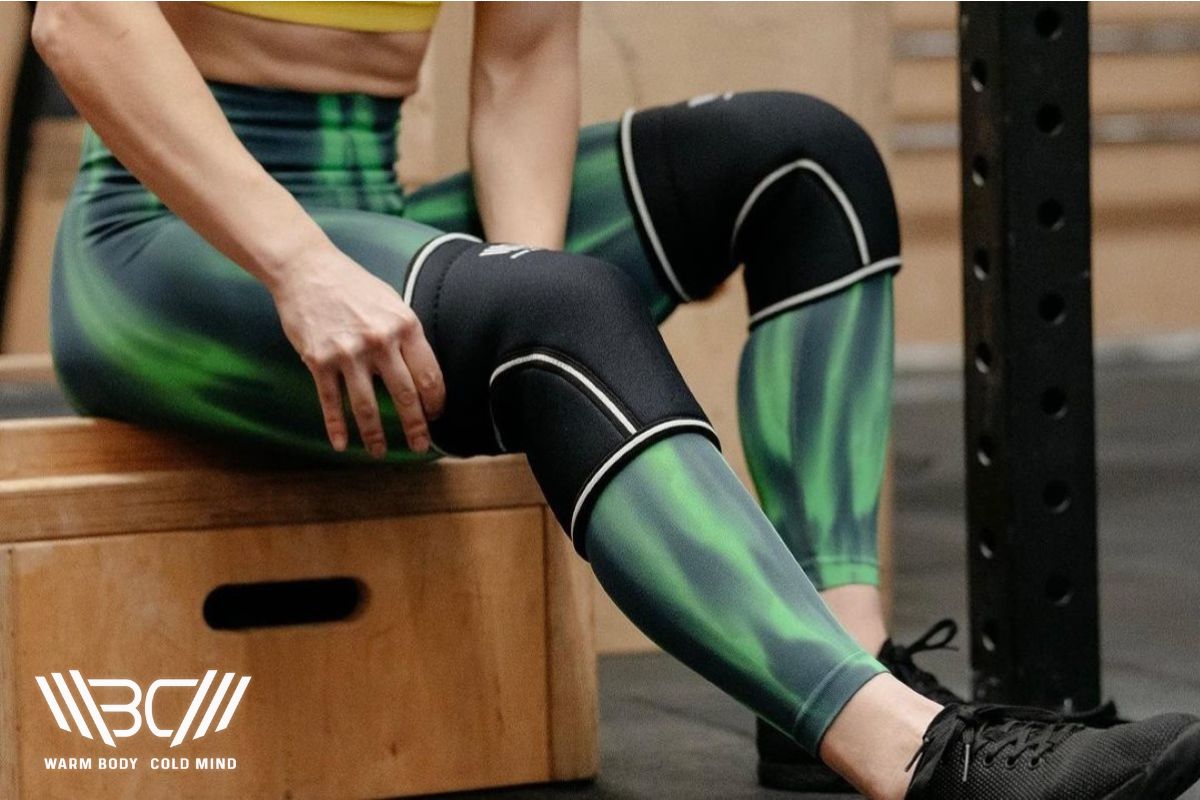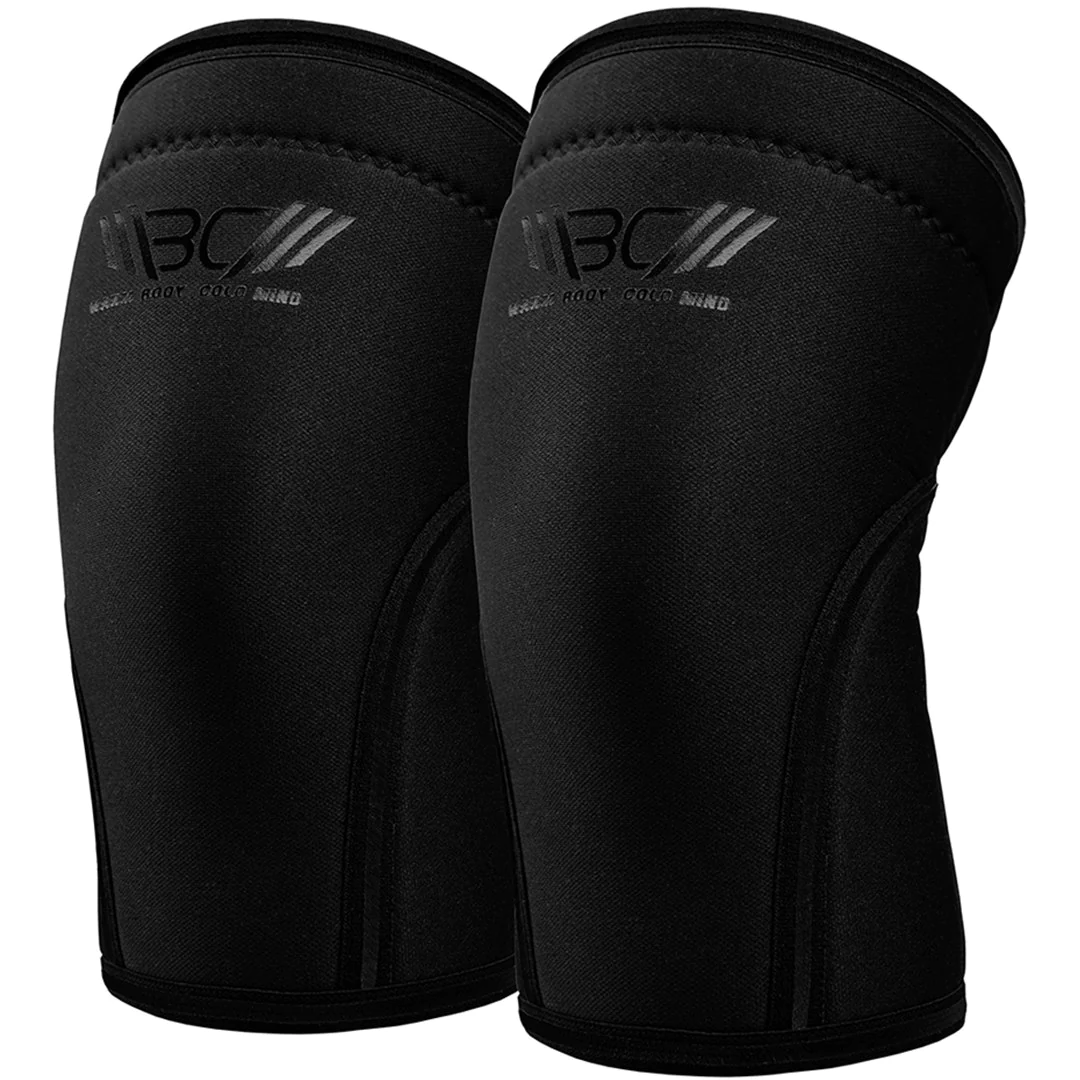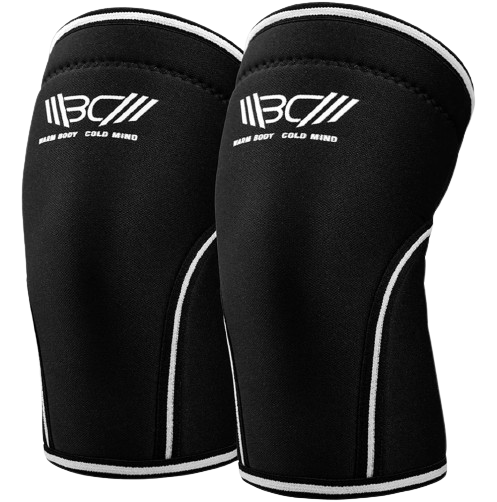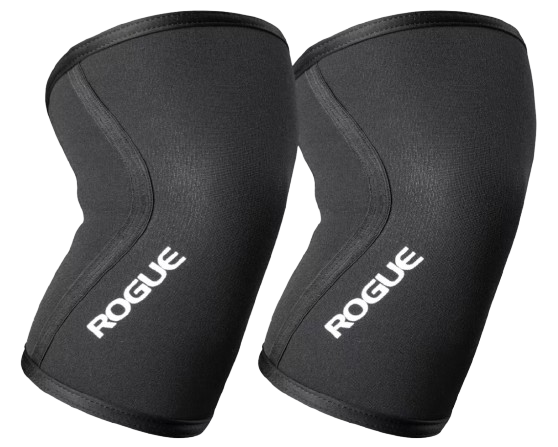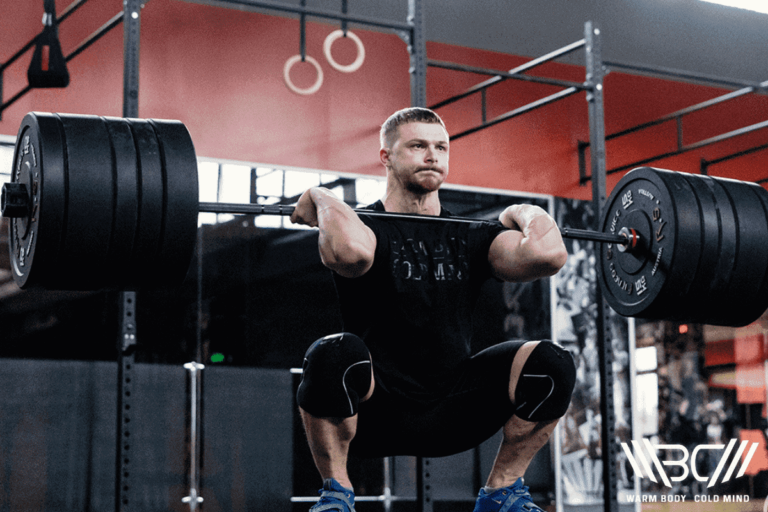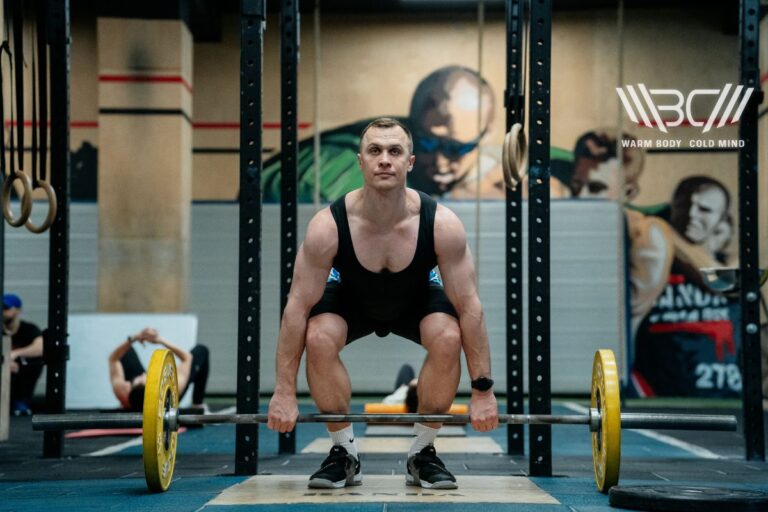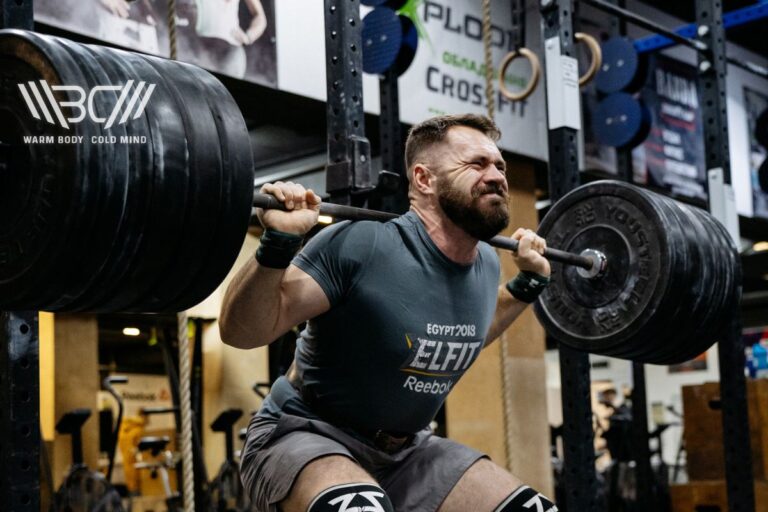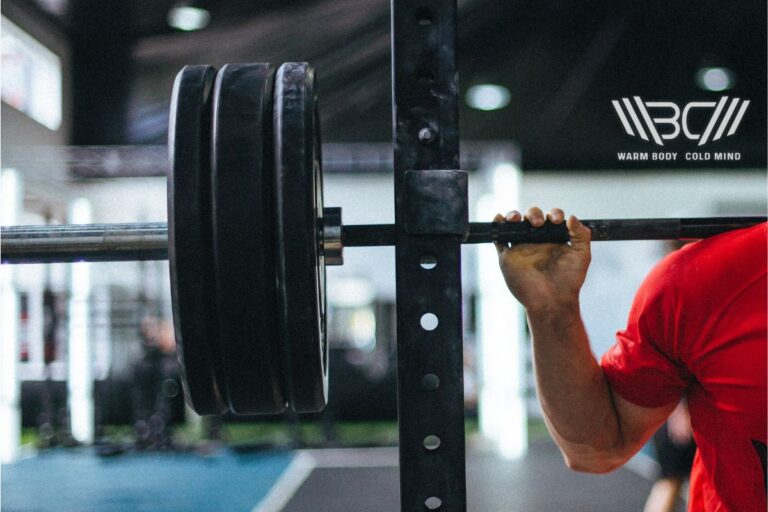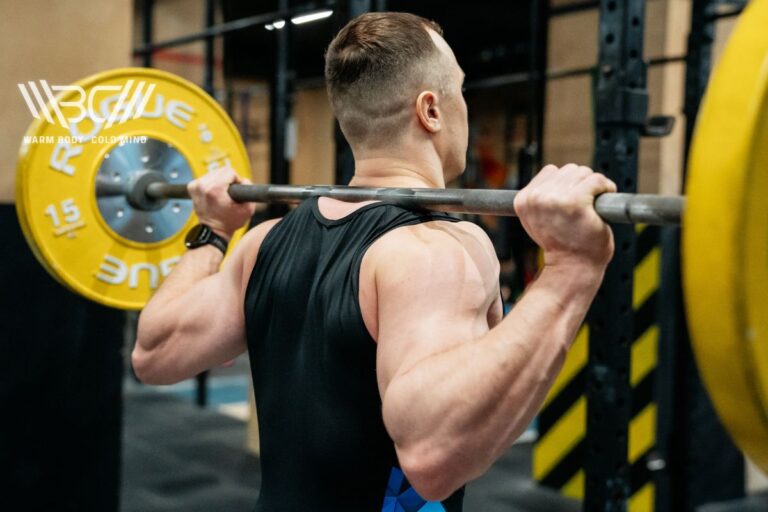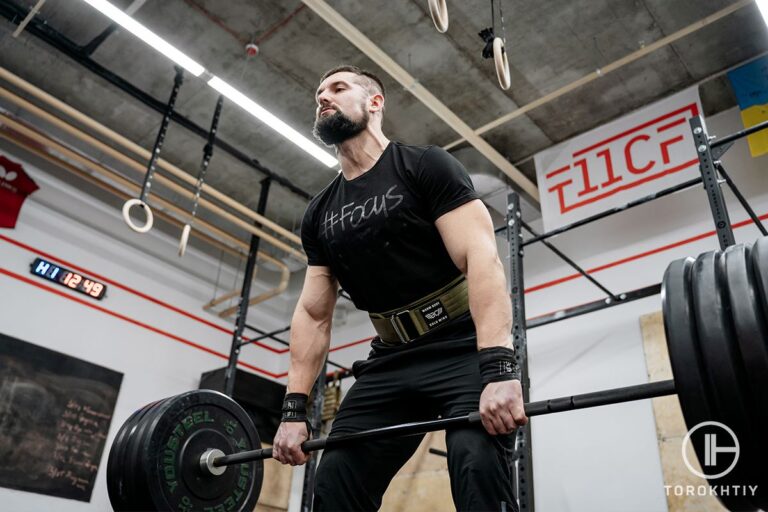5mm vs 7mm Knee Sleeves: Do You Need Both?
Knee sleeves provide compression around the knee joint, offering support and stability during gym movements where the knee is under increased pressure.
We’ve discussed the most suitable uses and main differences between the 5mm vs 7mm knee sleeves below so you can make the right decision when it comes to improving your lifting.
5mm vs 7mm Knee Sleeves – 5mm knee sleeves provide adequate support with more movement making them better suited for general lifting and functional fitness. 7mm knee sleeves have more knee sleeve thickness and provide more support but less movement making them better suited for powerlifting and strength-based movements.
7mm Knee Sleeves: Overview and Features
7mm knee sleeves offer heavy-duty support for the knee joint, ligaments, and surrounding structures. Most powerlifting companies use 7mm sleeves as the standard width with some offering more options.
Out of the two thicknesses, 7mm knee sleeves offer the most compression and elastic support. Alongside being the thickest knee sleeves, they are typically made from high-density neoprene. Due to this, they offer more bounce when performing heavy squat movements which is what makes them so popular among powerlifters.
While 7mm knee sleeves offer the most support, the thicker material leads to more movement restriction making them less suitable for dynamic exercises such as running, cycling, and Olympic lifting.
Due to the thicker material, care must be taken when choosing a suitable size. Considerations should include the exercise or sport, previous knee sleeve experience, and the amount of compression needed.
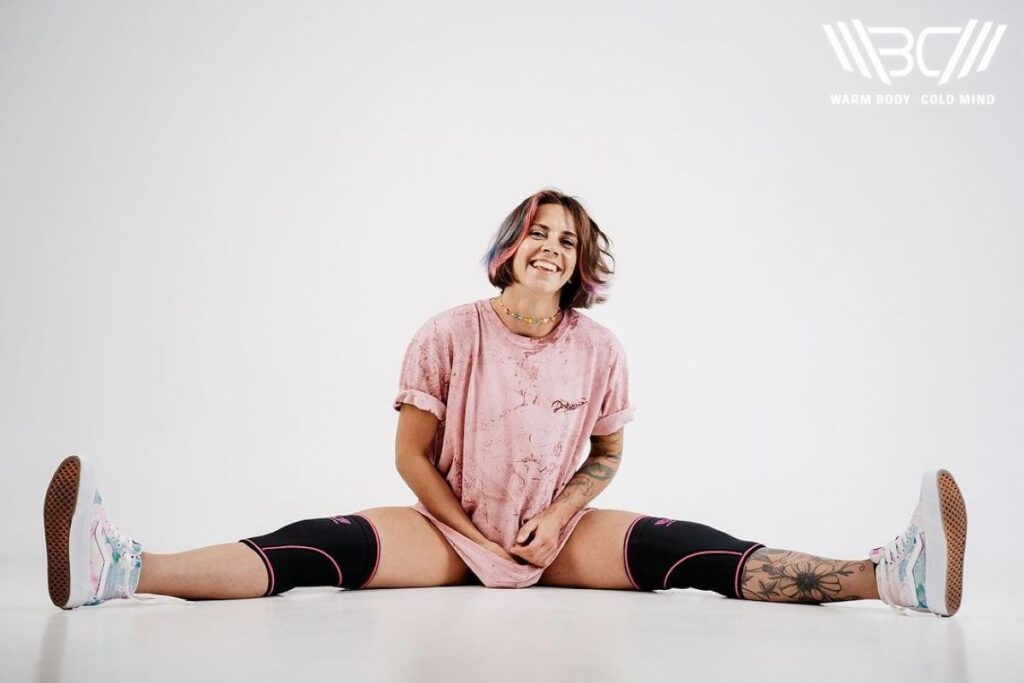
7mm Knee Sleeves: Pros
There are several benefits to wearing 7mm knee sleeves which include:
- They offer the strongest support out of all the knee sleeve options due to the thicker material
- The warmer compression improves blood flow and reduces pain around the knee joint and surrounding areas, providing joint protection
- The heavy-duty materials and design provide more bounce at the bottom of the squat position and possibly improve performance
- They are the maximum thickness allowed in powerlifting competitions
- They are the best knee sleeve options for improving strength and power compared to thinner options
- They offer more durability compared to thinner sleeves

7mm Weightlifting Knee Sleeves
Discover the ultimate support with Warm Body Cold Mind knee sleeves providing stability and comfort.
7mm Knee Sleeves: Cons
- The knee sleeves can be very restrictive for dynamic movements due to the thicker sleeve material
- The knee sleeves may be uncomfortable for those who are not used to wearing them or haven’t tried the thinner options yet
- The knee sleeves can be hard to put on correctly without experience
- The thicker sleeve material means that the sleeves don’t offer much adjustment room
Subscribe!
The latest reviews of must-have home gym training equipment, apparel, and supplements that will enhance your performance and bring you new results.
Who Needs 7mm Knee Sleeves?
7mm knee sleeves are the standard option for most serious lifters and competitive powerlifters. Here are some of the situations where they would be most suitable.
1. Competitive Powerlifters
As a sport that requires you to generate as much strength and power as possible, 7mm knee sleeves provide the perfect option for competitive powerlifting where performance is the most important factor.
The thicker knee sleeve material and better compression offer the most support for powerlifting, with the movement restriction not mattering as much for powerlifting events such as the squat and deadlift.
The main benefit of using 7mm knee sleeves for competitive powerlifting is the added bounce given at the bottom of the squat when looking to ‘drive out of the hole’.
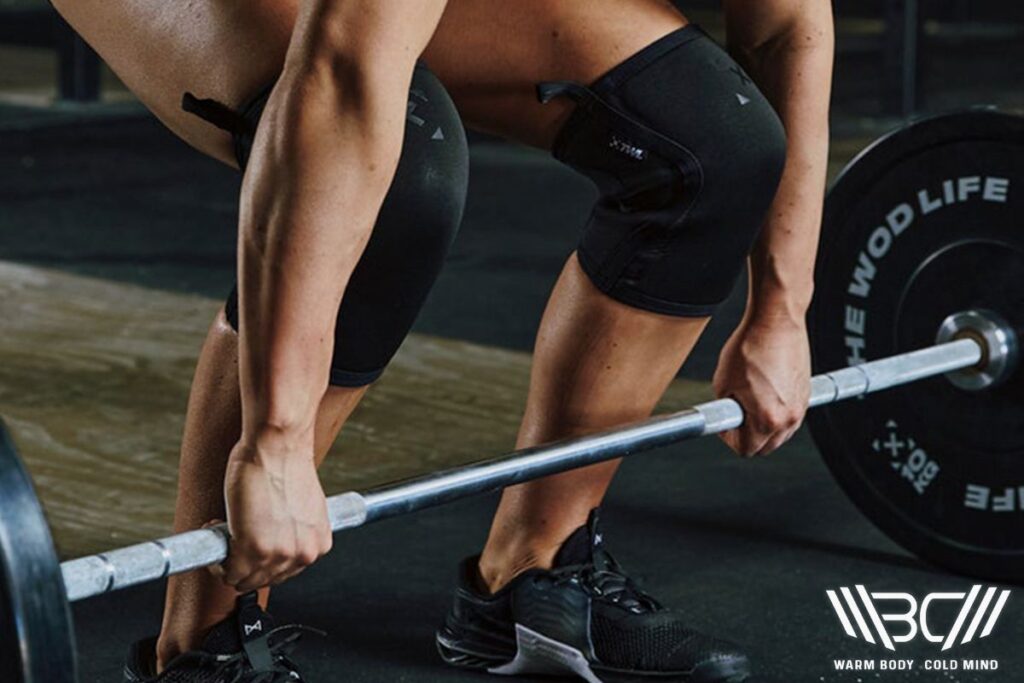
2. Bigger Athletes
If you’re a much bigger individual, thinner knee sleeves are more likely to stretch quickly and lose their shape compared to more durable, thicker knee sleeve options. Larger joints require more support and compression, making 7mm knee sleeves a much better option if you have bigger limb sizes and lengths.
3. Strength Athletes
Even if you’re not a competitive powerlifter, 7mm knee sleeves are the far better option when looking to improve any strength-based exercise that doesn’t need too much freedom of movement.
The added strength and stability provided will help to improve your lifts when fitted correctly. Make sure the sleeves are fitted correctly and you feel comfortable using them.
Our Recommended – WBCM Weightlifting 7mm Knee Sleeves
Our durable neoprene weightlifting knee sleeves feature an anatomical design that provides medical-grade support to the knee joint, ligaments, and surrounding structures. The built-in anti-slip system ensures a comfortable yet secure fit around the knee joint when lifting.
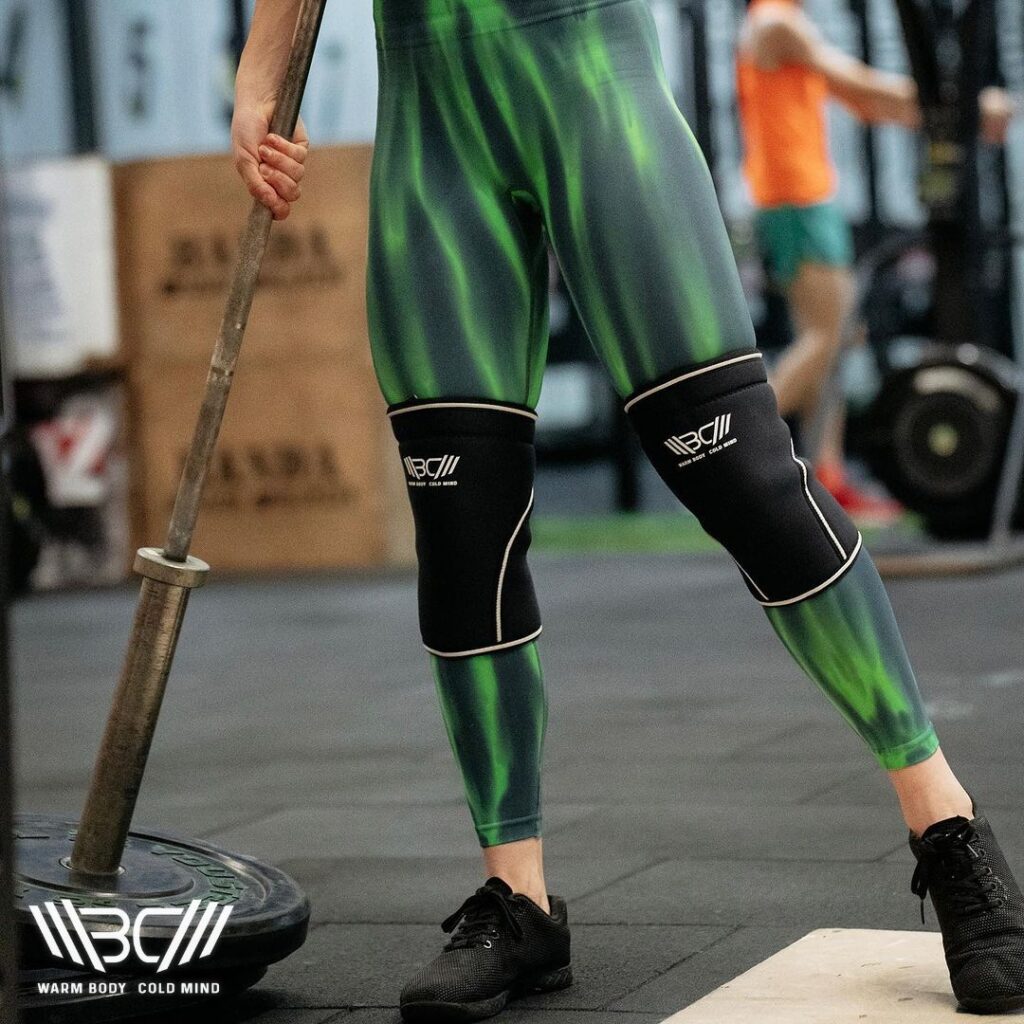
The sleeves are suitable for powerlifting, weightlifting, and sports that require added knee support. Three color options and six sizes are available to choose from.
5mm Knee Sleeves: Overview and Features
5mm knee sleeves offer moderate compression and support with more movement freedom for dynamic exercises and lifting movements. They are often made from neoprene offering some compression with a much more comfortable design compared to thicker knee sleeves. This makes them much more flexible and better for users who have no previous experience wearing knee sleeves.
Due to the thinner sleeve material, 5mm knee sleeves offer a normal, supportive fit that doesn’t bunch up behind the knee joints whilst still keeping them warmer and improving knee health.
5mm knee sleeves are great for general training and lifting, providing a good balance between support, flexibility, and comfort.
5mm Knee Sleeves: Pros
The main benefits of wearing 5mm knee sleeves include:
- They offer moderate support to the knee joint, ligaments, and surrounding structures without being too restrictive
- They are well suited to dynamic movements such as Olympic lifting and functional fitness exercises
- They are more flexible meaning the chance of them being too small or tight is reduced (Make sure to size them correctly)
- They are much easier to wear in a size down if needed and better for smaller individuals
- They provide a more comfortable fit to keep wearing them around the gym and between sets or different movements
5mm Knee Sleeves: Cons
- They offer less support and compression compared to thicker sleeve options, making them less suitable for strength-based, powerlifting movements
- The thinner material may make them more prone to moving around and stretching out of shape when lifting
- They are typically less durable compared to thicker knee sleeve options, meaning you may need to replace them more often with repeated use
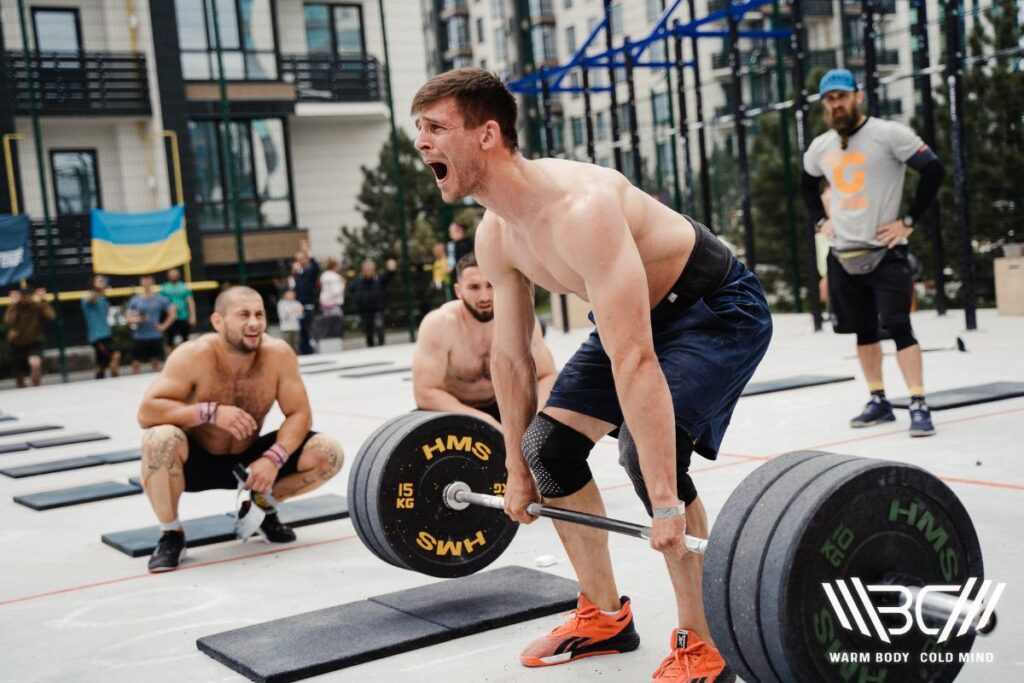
Who Needs 5mm Knee Sleeves?
Here are some of the main situations in which 5mm knee sleeves may be the best option.
1. Recreational Lifters
The 5mm knee sleeves offer more comfort and flexibility whilst still providing some compression and added warmth. This makes them most suitable for individuals performing general resistance training and sports where strength and power generation aren’t the main influencing factors.
5mm knee sleeves may be much better suited if you’re not used to wearing them and need to get used to the feeling without restricting movement too much. Once you’re used to the fit and feel, 7mm knee sleeves can then be considered.
2. Functional Fitness Athletes
Functional fitness athletes often perform the bulk of their training using dynamic exercises that require much more movement compared to strength-based powerlifting. This makes 5mm knee sleeves the better option for those looking for added stability and compression whilst still feeling comfortable and flexible to wear.
3. Smaller Athletes
Even for a larger individual, 7mm knee sleeves can be very restrictive. As a smaller individual, thinner 5mm knee sleeves may be the better option due to the smaller limb lengths and sizes.
Try to test both knee sleeve thicknesses to find the most suitable thickness for your limb dimensions. Some smaller individuals may prefer the 7mm sleeve option but in general, 5mm sleeves will be better for smaller athletes.
Our Recommended – Rogue 5mm Knee Sleeves
The Rogue 5mm knee sleeves are made from an SBR/ Neoprene material blend offering firm and comfortable knee support. The contoured sleeve design offers added support without restricting the range of motion, making them well-suited to general training and functional fitness activities.
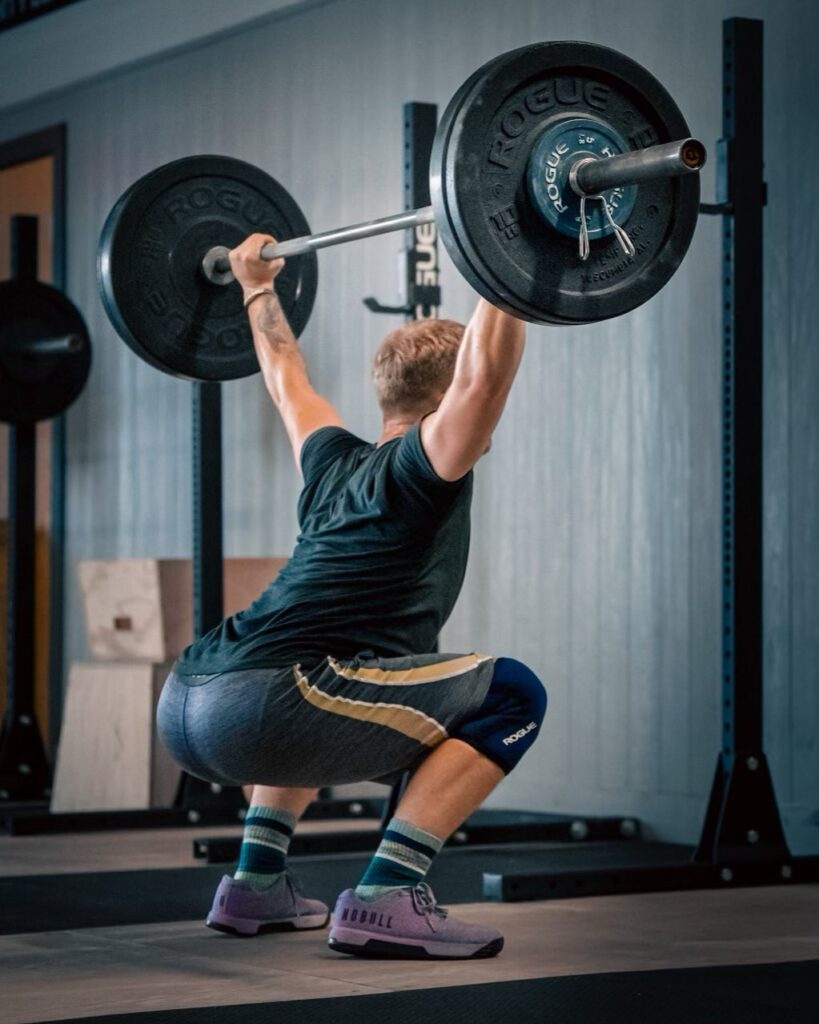
Rogue offers five sizes from XS to XL and five color choices with the white Rogue branding on the side
5mm vs 7mm Knee Sleeves: Key Differences
When choosing between the two knee sleeve thicknesses, use the table below as a general guide. Make sure to also consult a professional who can help you with the sleeve fit and make an assessment based on your general lifestyle and lifting routine.
Here are the key differences between 5mm and 7mm knee sleeves:
| Criteria | 7mm Knee Sleeves | 5mm Knee Sleeves |
| Support/ Stability | More support and stability compared to thinner sleeve options | Less support and stability due to the thinner sleeve material |
| Compression | Decent compression around the knee joint, ligaments, and surrounding structures | Some compression to the knee joint and surrounding structures but not as much as thicker options |
| Flexibility | Some flexibility offered but a reduction in flexibility is still seen compared to no knee sleeves | More flexibility is offered compared to thicker knee sleeves |
| Movement Freedom | The thicker material takes away movement freedom, making them less-suitable for dynamic exercises and movements | The slightly thinner material makes them more suitable for dynamic movements and exercises but still takes away some freedom compared to no sleeves |
| Durability | The thicker material design makes them more durable meaning they will last longer than thinner knee sleeves | The thinner sleeve material means they may not last as long as thicker options |
Other Knee Sleeve Sizes
So we’ve compared the 5mm vs 7mm knee sleeves above as two of the most popular sizes but what about 3mm vs 5mm knee sleeves or bigger sizes? Let’s briefly take a look below.
1. 3mm Knee Sleeves
3mm knee sleeves are extremely comfortable to wear. In most cases, you probably won’t even realize you are wearing them but they offer minimal support and compression compared to the thicker options.
Our advice would be to either train with no knee sleeves or use the 5mm and 7mm sleeve options depending on the exercises you’re performing as we’ve explained above.
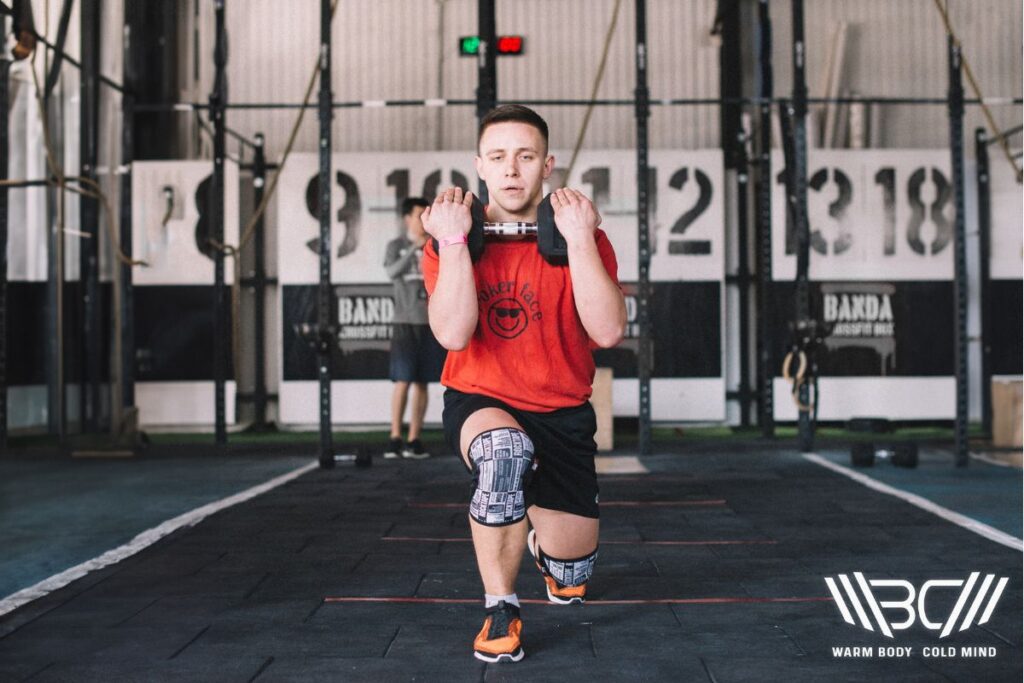
2. 9mm Knee Sleeves
9mm knee sleeves offer the biggest amount of support and compression but can be very restrictive, making them unsuitable for most sports events and gym lifts. They are also not allowed to be used in regulated powerlifting events, meaning there is no point in using them for powerlifting training.
Where 9mm knee sleeves may be useful is in competitive strongman events and strongman training where there are no thickness rules and much more focus is placed on power rather than movement.
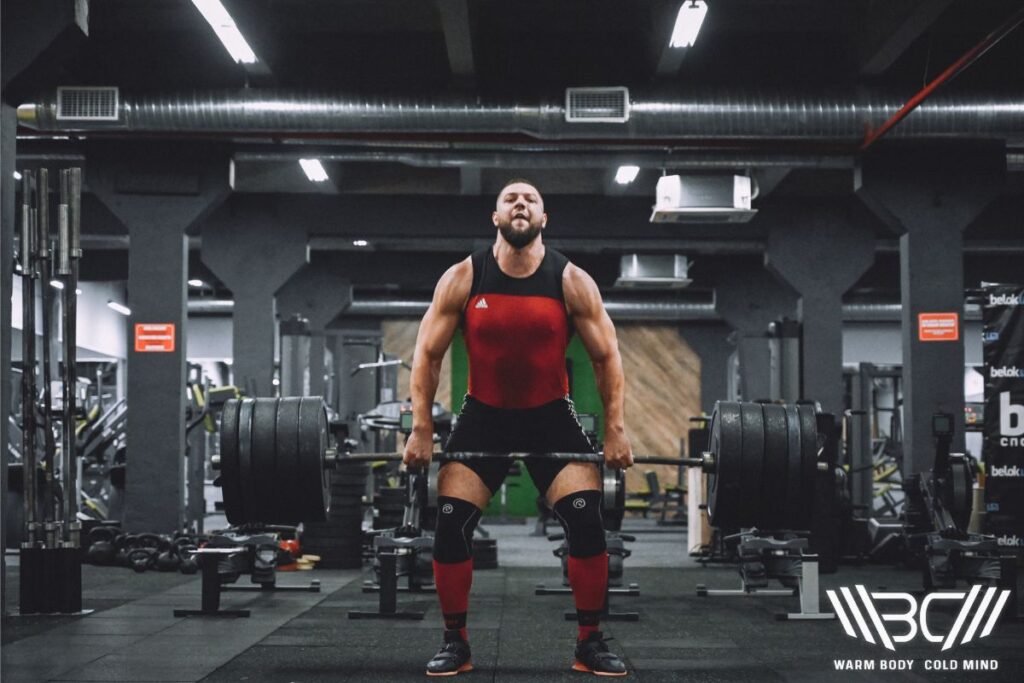
FAQ
Should You Get a Size Smaller in Knee Sleeves?
Regarding knee sleeve sizing, you can generally go for two fit options. A comfortable fit would be more suitable for regular training (hypertrophy weightlifting, functional fitness) whilst a tighter competition-type fit would be better for powerlifting and strength training.
Beginner lifters may be better off going with their actual size whilst they get used to wearing knee sleeves and then progress to a size smaller for strength-based exercises following repeated use.
Should I Get Thicker or Thinner Knee Sleeves?
While 7mm knee sleeves provide more stability and support for strength-based powerlifting movements, 5mm sleeves may be more comfortable and practical for functional fitness training or general lifting.
When deciding whether to get 7mm knee sleeves vs 5mm, consider what you need them for and choose using the guidance above.
Can You Run With 7mm Knee Sleeves?
7mm knee sleeves offer excellent knee support for powerlifting-type movements but are not the most suitable option for running.
Due to the tight fit, wearing them when running will often restrict your natural running motion and therefore promote poor form and increase the chances of injury.
Conclusion
Considering your exercise needs is paramount when deciding the best knee sleeve option for you. Knee sleeves provide compression and pain relief and therefore may help with performance indirectly. Both the 7mm and 5mm knee sleeves provide different levels of support, comfort, and flexibility which changes their suitable exercise uses.
Thinner and thicker sleeve options are also available which offer alternative choices. Choose the right sleeve thickness for the exercises you regularly perform.
What knee sleeve thickness do you use and why? Have you tried a size smaller? Let’s discuss this in the comments below.
References:
- Jonathan Weakley, James Broatch, Shane O’Riordan, Matthew Morrison, Nirav Maniar, Shona L. Halson, “Putting the Squeeze on Compression Garments: Current Evidence and Recommendations for Future Research: A Systematic Scoping Review,” Journal of Sports Medicine 5, no.52 (2022):1141-1160. doi:10.1007/s40279-021-01604-9
- Jason P. Lake, Patrick J. Carden, Kath A. Shorter, “Wearing knee wraps affects mechanical output and performance characteristics of back squat exercise,” Journal of Strength and Conditioning Research 10, no.26 (2012):2844-2849. doi:10.1519/JSC.0b013e3182429840
- Mark Bell, “How do I Size for a Knee Sleeve?,” YouTube, https://youtu.be/kLVl8BptlsI?si=598Wde_ycVOY3JoA (Accessed December 22, 2023)
- Nadatul A. M. Sharif, Siew-Li Goh, Juliana Usman, Wan Kamarul Z. Wan Safwani, “Biomechanical and functional efficacy of knee sleeves: A literature review,” Journal of Physical Therapy and Sport 28 (2017):44-52. doi:10.1016/j.ptsp.2017.05.001
Author: Sergii Putsov
PhD in Sport Science, Olympic weightlifting, Strength & Conditioning coach and fitness expert
Sergii Putsov is a professional weightlifter with over 20 years of experience and multiple national medals. He was a member of the National weightlifting team, competing in the 94 kg weight class. Sergii holds a master’s degree in Olympic & Professional Sport Training and a Ph.D. in Sport Science. After his athletic career, Sergii transitioned into coaching and is now responsible for designing training programs, writing blog articles, providing live commentary for international weightlifting competitions, and hosting sport and fitness seminars worldwide.

